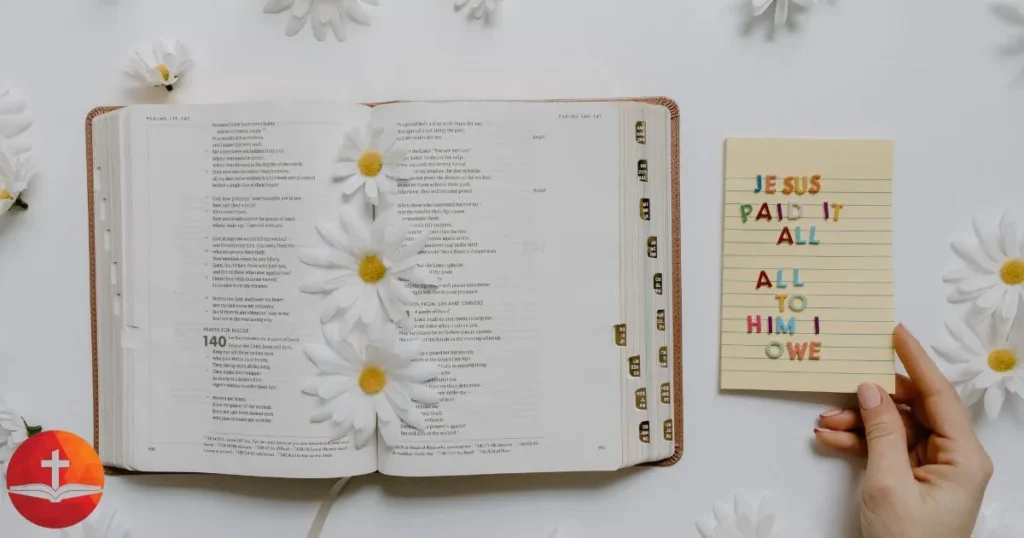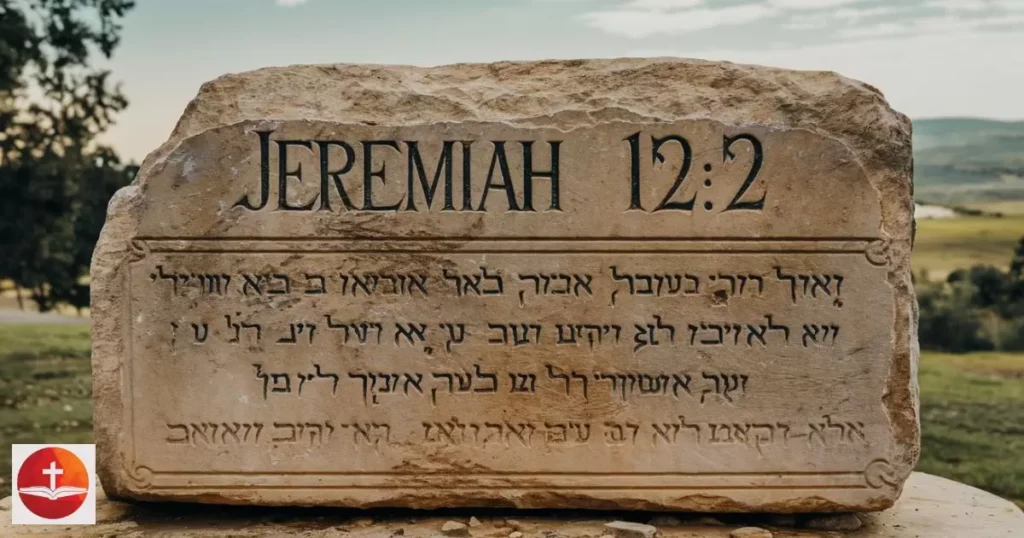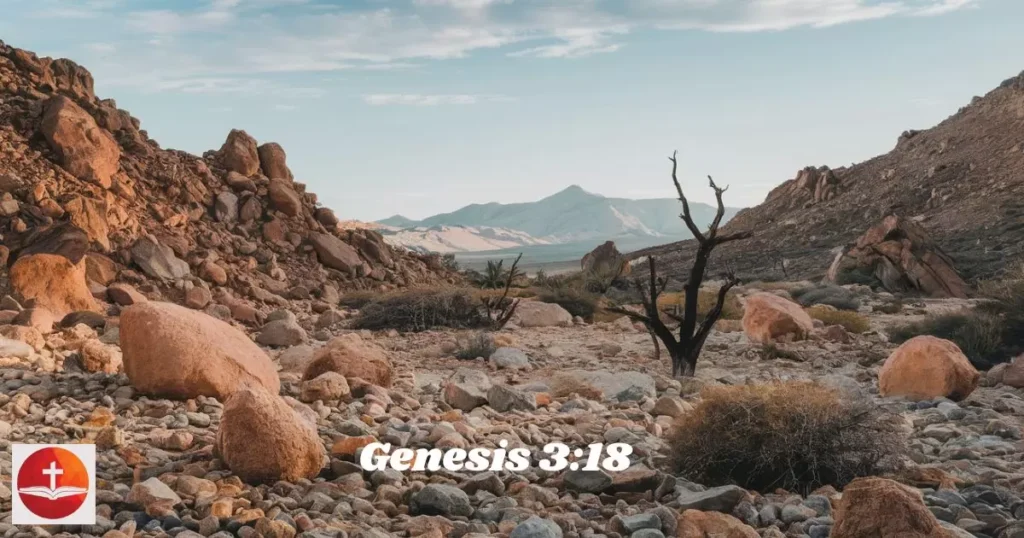“Embracing the Beauty of Creation: Bible Verses About Flowers Blooming”
Flowers, with their vibrant colors and delicate petals, symbolize beauty, growth, and the intricate work of God’s creation. In the Bible, flowers are often used to illustrate spiritual truths, divine provision, and the fleeting nature of life.
This article explores various Bible verses that reflect on flowers blooming, offering insights into their symbolic meanings and the lessons they impart about God’s creation and care.
1. Matthew 6:28-29

“And why do you worry about clothes? See how the flowers of the field grow. They do not labor or spin. Yet I tell you that not even Solomon in all his splendor was dressed like one of these.“
This passage highlights the beauty of flowers and how God’s provision for them surpasses even the greatest human splendor.
2. Song of Solomon 2:1
“I am a rose of Sharon, a lily of the valleys.“
In this verse, the flower imagery represents beauty and love, illustrating the beloved’s charm and grace.
3. Isaiah 40:8
“The grass withers and the flowers fall, but the word of our God endures forever.“
This verse contrasts the temporary nature of flowers with the eternal nature of God’s word, emphasizing the permanence of spiritual truths.
4. 1 Peter 1:24-25
“For ‘All people are like grass, and all their glory is like the flowers of the field; the grass withers and the flowers fall, but the word of the Lord endures forever.’ And this is the word that was preached to you.“
Similar to Isaiah 40:8, this passage uses flowers to symbolize the transient nature of human life compared to the enduring nature of God’s word.
5. Psalm 103:15-16
“The life of mortals is like grass, they flourish like a flower of the field; the wind blows over it and it is gone, and its place remembers it no more.“
This passage reflects on the fleeting nature of human life, likening it to a flower that blooms briefly before fading away.
6. Hosea 14:5

“I will be like the dew to Israel; he will blossom like a lily. Like a cedar of Lebanon he will send down his roots;“
Here, the blooming lily symbolizes the restoration and flourishing of Israel under God’s care.
7. Job 14:2
“Like a flower he comes forth and withers away; like a fleeting shadow, he does not endure.“
Job reflects on the brevity of life using the imagery of a flower, emphasizing human fragility.
8. Isaiah 35:1
“The desert and the parched land will be glad; the wilderness will rejoice and blossom. Like the crocus,“
This verse speaks of the transformation and renewal of the land, symbolizing hope and restoration through divine intervention.
9. Luke 12:27
“Consider how the wild flowers grow. They do not labor or spin. Yet I tell you that not even Solomon in all his splendor was dressed like one of these.“
Similar to Matthew 6:28-29, this verse encourages trust in God’s provision by reflecting on the natural beauty of wildflowers.
10. Jeremiah 12:2

“You have planted them, and they have taken root; they grow and bear fruit. You are always on their lips, but far from their hearts.“
The imagery of plants and flowers symbolizes growth and the potential for bearing fruit, reflecting spiritual vitality.
11. Proverbs 31:30
“Charm is deceptive, and beauty is fleeting; but a woman who fears the Lord is to be praised.“
While beauty, like a flower, is temporary, the reverence for the Lord is enduring and valuable.
12. Ecclesiastes 3:2
“A time to be born and a time to die, a time to plant and a time to uproot,“
This passage reflects on the cycles of life and nature, including the blooming and fading of flowers as part of God’s orderly creation.
13. Matthew 6:30
“If that is how God clothes the grass of the field, which is here today and tomorrow is thrown into the fire, will he not much more clothe you—you of little faith?“
Flowers symbolize God’s care and provision, even for the most temporary aspects of creation.
14. Isaiah 55:12
“You will go out in joy and be led forth in peace; the mountains and hills will burst into song before you, and all the trees of the field will clap their hands.“
This verse uses imagery of nature, including flowers, to express joy and celebration in God’s creation.
15. Hosea 14:7
“They will return and dwell beneath my shade; they will flourish like the grain; they will blossom like the vine; Israel’s fame will be like the wine of Lebanon.“
The blossoming vine symbolizes prosperity and growth under God’s care.
Bible Verses on Politics
16. Ezekiel 17:24
“All the trees of the field will know that I, the Lord, bring down the tall tree and make the low tree grow tall. I dry up the green tree and make the dry tree flourish. I the Lord have spoken, and I will do it.“
God’s sovereignty over nature is illustrated by His ability to bring growth and renewal.
17. Zechariah 8:12
“The seed will grow well, the vine will yield its fruit, the ground will produce its crops, and the heavens will drop their dew. I will give all these things as an inheritance to the remnant of this people.“
This passage speaks to the abundant growth and blessings that come with God’s favor.
18. Psalm 92:12
“The righteous will flourish like a palm tree, they will grow like a cedar of Lebanon.“
Righteousness is compared to flourishing trees, symbolizing strength and growth.
19. Jeremiah 17:8
“They will be like a tree planted by the water that sends out its roots by the stream. It does not fear when heat comes; its leaves are always green. It has no worries in a year of drought and never fails to bear fruit.“
This verse uses the imagery of a well-watered tree to represent spiritual health and fruitfulness.
20. Song of Solomon 6:2
“My beloved has gone down to his garden, to the beds of spices, to browse in the gardens and to gather lilies.“
The imagery of a garden filled with flowers symbolizes love and beauty in relationships.
21. Psalm 104:14
“He makes grass grow for the cattle, and plants for man to cultivate—bringing forth food from the earth:“
God’s provision for both animals and people is illustrated through the growth of plants and flowers.
22. Isaiah 44:4
“They will spring up like grass in a meadow, like poplar trees by flowing streams.“
This verse describes the flourishing of people and blessings as a result of God’s favor.
23. Psalm 65:9
“You care for the land and water it; you enrich it abundantly. The streams of God are filled with water to provide the people with grain, for so you have ordained it.“
God’s care for the land and its abundance, including flowers, reflects His provision and blessing.
24. Zephaniah 3:17
“The Lord your God is with you, the Mighty Warrior who saves. He will take great delight in you; in his love he will no longer rebuke you, but will rejoice over you with singing.“
The imagery of God’s delight and joy reflects the beauty and flourishing of creation.
25. Joel 2:23
“Be glad, people of Zion, rejoice in the Lord your God, for he has given you the autumn rains because he is faithful. He sends you abundant showers, both autumn and spring rains, as before.“
The abundant rains that lead to flourishing crops and flowers symbolize God’s faithfulness and blessings.
26. Exodus 16:14
“When the dew was gone, thin flakes like frost on the ground appeared on the desert floor.“
The appearance of dew and frost symbolizes God’s provision in the wilderness, similar to how flowers bloom with rain.
27. 1 Kings 18:44
“The seventh time the servant reported, ‘A cloud as small as a man’s hand is rising from the sea.’ So Elijah said, ‘Go and tell Ahab, ‘Hitch up your chariot and go down before the rain stops you.”“
The small cloud signaling the coming rain, which leads to growth, symbolizes the beginning of abundant blessings.
28. Psalm 104:13
“He waters the mountains from his upper chambers; the land is satisfied by the fruit of his work.“
God’s provision of water for the land, leading to the growth of flowers and crops, reflects His care.
29. Exodus 25:31
“Make a lampstand of pure gold and hammer it out, base and shaft. Its flowerlike cups, buds, and blossoms shall be of one piece with it.“
The lampstand’s design includes flower-like elements, symbolizing beauty and divine craftsmanship.
30. Genesis 1:12
“The land produced vegetation: plants bearing seed according to their kinds and trees bearing fruit with seed in it according to their kinds. And God saw that it was good.“
This verse celebrates the creation of plant life, including flowers, as part of God’s good creation.
31. 2 Chronicles 9:15
“The king made silver as common in Jerusalem as stones, and cedar as abundant as sycamore-fig trees in the foothills.“
The abundance of trees and flowers in this description reflects prosperity and God’s blessings.
32. Matthew 21:19
“Seeing a fig tree by the road, he went up to it but found nothing on it except leaves. Then he said to it, ‘May you never bear fruit again!’ Immediately the tree withered.“
The withering of the fig tree, despite its leaves, illustrates the importance of bearing fruit and the transient nature of external appearances.
33. Proverbs 11:28
“Those who trust in their riches will fall, but the righteous will thrive like a green leaf.“
The flourishing green leaf symbolizes the vitality and growth of those who live righteously.
34. Job 8:11
“Can the papyrus grow tall where there is no marsh? Can reeds thrive without water?“
The growth of papyrus and reeds depends on their environment, symbolizing the need for spiritual nourishment.
35. Isaiah 61:11
“For as the soil makes the sprout come up and a garden causes seeds to grow, so the Sovereign Lord will make righteousness and praise spring up before all nations.“
The growth of plants in a garden symbolizes the flourishing of righteousness and praise through God’s work.
36. Matthew 13:32
“Though it is the smallest of all seeds, yet when it grows, it is the largest of garden plants and becomes a tree, so that the birds come and perch in its branches.“
The parable of the mustard seed illustrates how small beginnings can lead to significant growth, akin to the blooming of flowers.
37. Genesis 2:5
“Now no shrub had yet appeared on the earth and no plant had yet sprung up, for the Lord God had not sent rain on the earth and there was no one to work the ground.“
The creation of plants, including flowers, is a part of God’s plan for the earth’s development.
38. Hosea 10:12
“Sow righteousness for yourselves, reap the fruit of unfailing love, and break up your unplowed ground; for it is time to seek the Lord, until he comes and showers his righteousness on you.“
The imagery of sowing and reaping reflects the spiritual growth and blessings that result from seeking God.
39. Genesis 3:18

“It will produce thorns and thistles for you, and you will eat the plants of the field.“
The mention of thorns and thistles contrasts with the intended abundance of flowers and plants before the fall.
40. 1 Corinthians 15:37
“When you sow, you do not plant the body that will be, but just a seed, perhaps of wheat or of something else.“
This verse uses the imagery of sowing seeds to explain resurrection and transformation.
41. Psalm 68:6
“God sets the lonely in families, he leads out the prisoners with singing; but the rebellious live in a sun-scorched land.“
The imagery of God setting the lonely and leading out prisoners contrasts with the flourishing nature of flowers, symbolizing hope and restoration.
42. Ezekiel 17:24
“All the trees of the forest will know that I am the Lord. I bring down the tall tree and make the low tree grow tall. I dry up the green tree and make the dry tree flourish. I the Lord have spoken, and I will do it.“
God’s power to transform and renew is illustrated through the growth and flourishing of trees and flowers.
43. Joel 2:22
“Do not be afraid, you wild animals, for the pastures in the wilderness are becoming green. The trees are bearing their fruit; the fig tree and the vine yield their riches.“
This passage speaks of renewal and abundance in nature, symbolized by the greening pastures and fruitful trees.
44. Proverbs 3:18
“She is a tree of life to those who take hold of her; those who hold her fast will be blessed.“
Wisdom is compared to a tree of life, symbolizing growth and blessings.
45. Psalm 104:16
“The trees of the Lord are well watered, the cedars of Lebanon that he planted.“
The well-watered trees symbolize the care and provision of God, leading to flourishing and growth.
Answers to Key Questions
Q1: What do flowers symbolize in the Bible?
A1: In the Bible, flowers often symbolize beauty, the transient nature of life, and God’s provision and care (Matthew 6:28-29; Isaiah 40:8).
Q2: How do flowers relate to spiritual lessons in the Bible?
A2: Flowers illustrate spiritual truths such as the fleeting nature of life, the importance of growth, and the beauty of God’s creation (Psalm 103:15-16; Matthew 13:32).
Q3: What can we learn from the Bible’s use of flower imagery?
A3: Flower imagery teaches us about the temporary nature of earthly things compared to the enduring nature of God’s word and promises (Isaiah 40:8; 1 Peter 1:24-25).
Q4: How can we apply the lessons from flowers blooming to our lives?
A4: We can apply these lessons by appreciating God’s provision, recognizing the importance of spiritual growth, and valuing the beauty of creation (Matthew 6:30; Hosea 14:5).
Q5: What does the Bible say about God’s care for nature?
A5: The Bible highlights God’s care for nature through His provision of water and growth for plants and flowers, reflecting His care and blessings (Psalm 104:13; Joel 2:23).
Q6: How do flowers in the Bible relate to God’s promises?
A6: Flowers symbolize the fulfillment of God’s promises, including His provision, restoration, and the flourishing of His people (Isaiah 35:1; Zechariah 8:12).
Conclusion
Flowers blooming are a testament to the beauty and care of God’s creation. Through various Bible verses, we see how flowers symbolize the transient nature of life, the beauty of divine provision, and the promise of spiritual growth.
By reflecting on these verses, we gain a deeper appreciation for God’s handiwork and the lessons He imparts through nature. Embracing these Biblical teachings helps us recognize the profound connections between the natural world and our spiritual lives.

Hi! I’m Lauren Reynolds, author of biblepulze.com. I make Bible teachings easy to understand and accessible for everyone. Join me as we explore the wisdom and inspiration of the Scriptures together!

